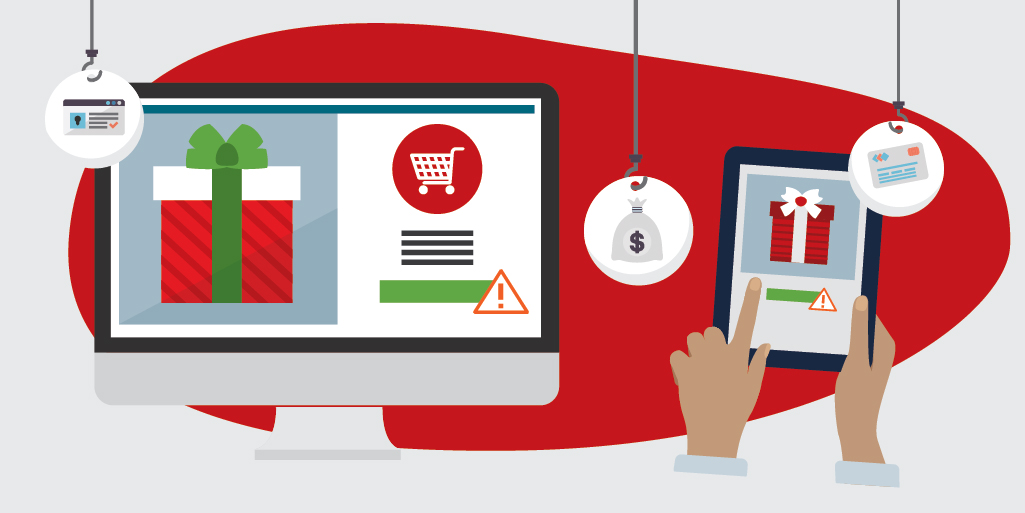
Holiday shopping has begun. Post-pandemic, more stores are opening their doors, but the high demand and low availability of products still exists. If you choose to venture out into the stores, make sure you exercise caution and put up a strong cybersecurity shield. Many will choose to shop online. There are defensive factors you should keep in mind for both.
- Keep your devices and packages securely tucked away as you move from store to store.
- Turn off Bluetooth, locations services and other tracking devices on your mobile device.
- Use secure connections. Use a VPN when possible and avoid public wi-fi.
- Shop only on secure websites. Look for https://, a lock symbol or green color in the address bar.
- Use a credit card with a low credit limit, and only use it for online purchases.
- Use strong and unique passwords for each shopping site. Don’t store this information in your browser.
- Keep your anti-virus software up to date. Update your browsers too.
- Check reviews and reputations.
- Watch out for too good to be true deals. Scammers are good at making you feel like you might miss out if you let an offer pass you by. Compare prices on similar websites.
- Use a credit card rather than a debit card for online purchases. Debit cards have a direct link to your bank account. You might be able to recoup fraudulent charges made against it, but, until that happens, you could be broke. Federal law limits your liability from unauthorized purchases on your credit card.
- Never store your credit card information online.
- Read the fine print. Understand additional costs like shipping and handling, taxes, restocking fees or hidden costs. Look at descriptions of the product. Are the dimensions accurately depicted in the picture? Know about return policies.
- Avoid falling for click bait. You know, the pop up ads that appear on your social media page? These are just paid advertisers and are not necessarily vetted by the site.
- When shopping from your phone or other mobile device, use retailer apps secured from reputable stores (Google Play, Amazon, Apple, etc.).
- Consider checking out as a guest rather that creating an account. For a one-time purchase from a vendor, this makes sense and is one less account to keep track of.
- Don’t forget about charitable donations. Make sure you know the organization you are donating to and how the funds are used and processed.
If you have ordered gifts online, you need to think about delivery options. If you are not at home, consider having a neighbor watch for your package delivery and secure it before the “porch pirates” get a chance. Or have it delivered to your neighbor’s address or your office. Watch out for the fake delivery scams in your email. These can look legitimate, so be very careful to scrutinize the email and don’t click on links that require you to enter in sensitive information. Monitor your credit card to ensure that all the purchases are ones that were made by you. If you suspect fraud, report it immediately.
Shopping online is convenient. Be vigilant and take control of the safety of your personal information and money.
